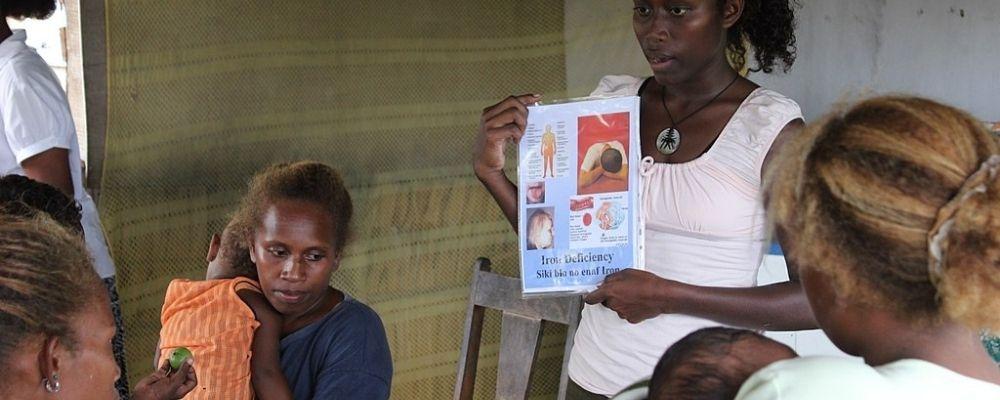 Lydia Kaforau is a neonatal and pediatric nurse currently undertaking a PhD at Curtin University in Perth, Australia. Originally from the Solomon Islands, Lydia is studying the risk factors of adverse birth outcomes such as low birth weight, preterm birth, and child and infant mortality for women in the Solomon Islands.
Lydia Kaforau is a neonatal and pediatric nurse currently undertaking a PhD at Curtin University in Perth, Australia. Originally from the Solomon Islands, Lydia is studying the risk factors of adverse birth outcomes such as low birth weight, preterm birth, and child and infant mortality for women in the Solomon Islands.
Accurate, up to date data from the Pacific is vital to her research.
Please tell me about your PHD?
I started my PhD in 2019. There was a bit of delay in 2020, because I couldn't go for field work due to the Covid-19 pandemic. Instead of field work I applied for Solomon Islands Demographic and Health
Survey (DHS) data. The Solomon Island government is the custodian of these data sets and after six months I was able to gain permission to analyse datasets for neonatal and under five mortality and low birth weight.
How else have you accessed the data you need for you research?
There’s a real lack of information and studies on the Pacific. When I did my scoping review, I searched though a lot of literature but couldn’t find the information I needed in scholarly databases, so I started searching regional organizations and of course Pacific Community came up and I was directed to the Pacific Data Hub which I’ve used to access and apply for access to the datasets I need for my research.
How has having access to the data helped in your research?
The DHS survey used a study population that represents the true population of the Solomon Islands. The survey used 211 enumeration areas of the 2009 national census, representing all the ten provinces of the Solomon Islands. Therefore, the data and results are trustworthy and reliable to infer for the Solomon Islands population.
Also, the DHS used a large population of women and births (n=4272), which gives the credibility for precision for estimating prevalence and measure of association between the predictor and outcome variables. In epidemiology, the larger the study population, the more accurate the estimation of disease prevalence and the association between the predictor and outcome variables.
In my analysis, I measure the prevalence of low-birth-weight infants, neonatal and under-five mortalities. I am also using the generalised linear models with log link and logit function with STATA17 to generate relative risks between the predictor variables, birth weight and under-five mortalities.
Having had the opportunity to access and analyse the DHS data for the Solomon Islands, I have seen that to be very significant for the following reasons. I was able to identify the prevalence and risk factors of low birth weight neonatal and under-five mortalities that affect women during pregnancy and perinatal period for the Solomon Islands.
I was able to identify other gaps in health research in the Solomon Islands context that needs attention and further study. I can contribute to new local knowledge and information, and problems that have been identified will inform literature and evidence-based practice for the Solomon Islands.
The Solomon Islands and the Pacific Region still lack quality literature and research; the two papers that I am producing from the Solomon Islands 2015 DHS will add a new face to health research in the Solomon Islands and the region.
I hope to motivate other health researchers from the region to utilise the DHS data for analysis, identify problems, and seek meaningful solutions within their own context.
Why is data from the Pacific important in your research?
As a nurse clinician, and researcher in the Solomon Islands evidence-based practice is core to improving our medical and nursing practice. A lot of the time, we tend to infer findings and make conclusions from studies from low- and middle-income countries as evidence-based information that may not be very relevant to our context.
Through analysing the DHS data for the Solomon Islands, I found some interesting information that is relevant to the Solomon Island context. For example, the use of Kava and betel nut and marijuana among women and any association with infant mortality and birth outcomes. And I think this is really one of the most fascinating things about my research. We are seeing these substances increasingly consumed by women in the Pacific and there hasn't been many studies on their use of as far as I know, but I think the information that I get is really important to inform health services and health practices in the Solomon Islands and the Pacific as a whole
